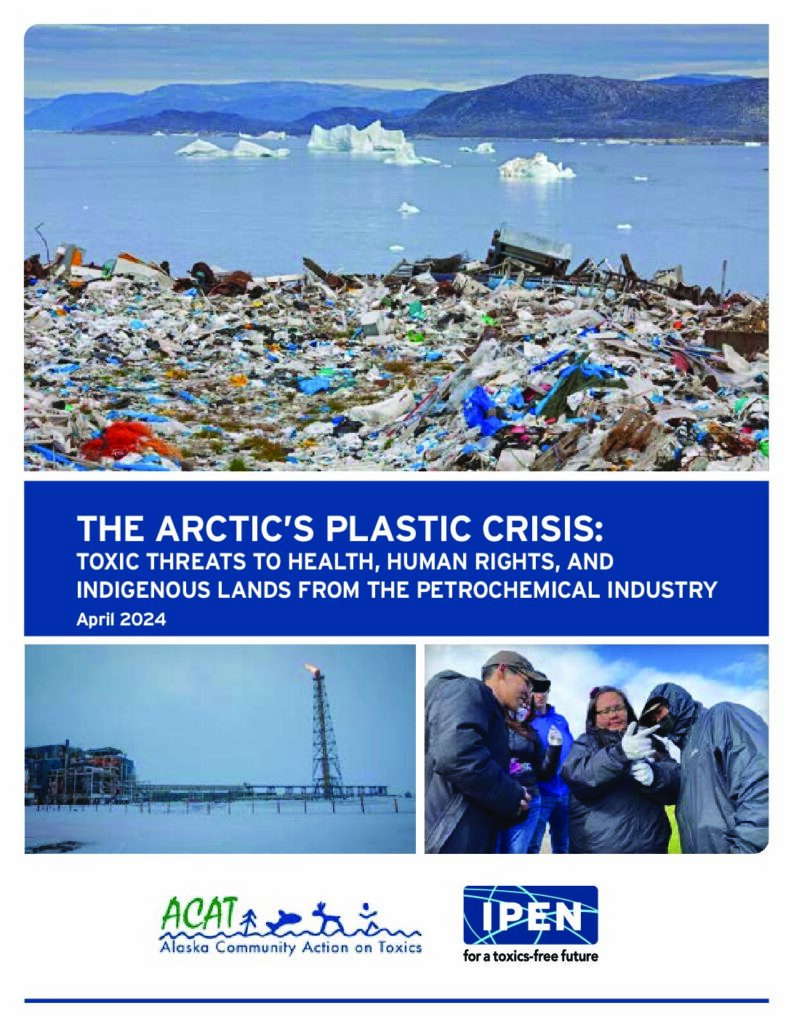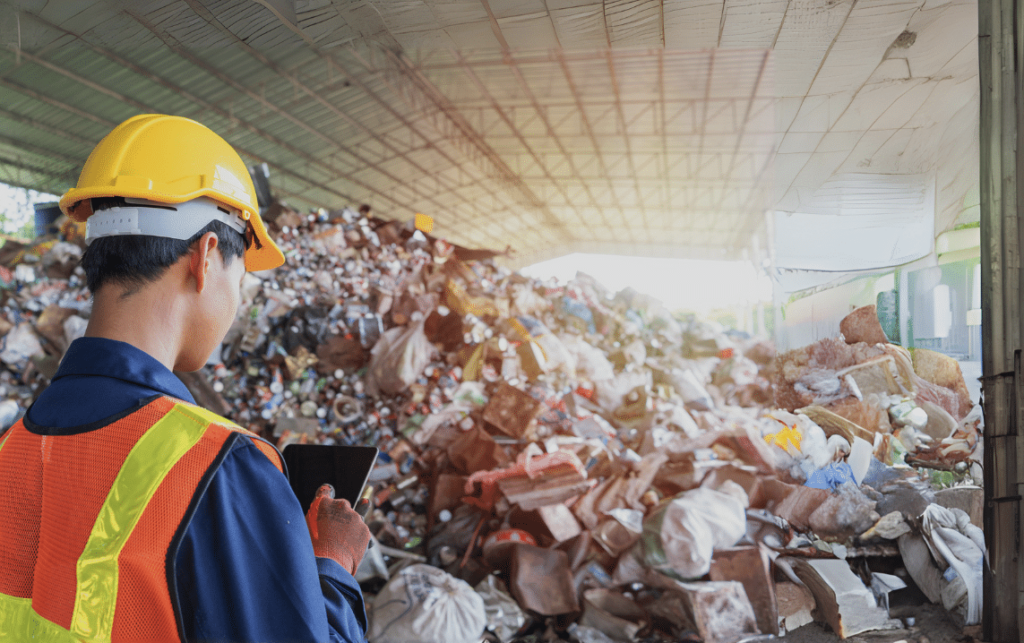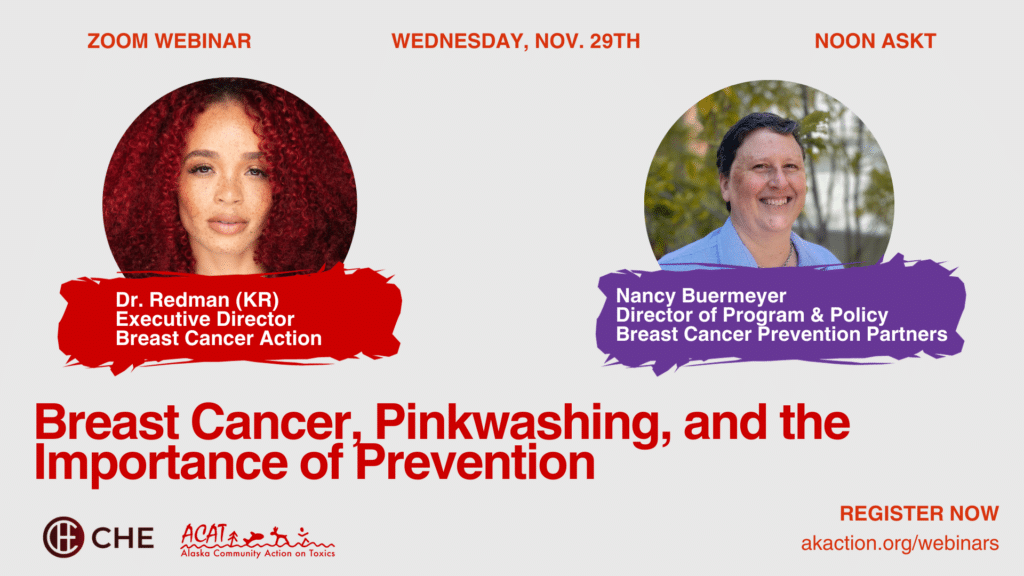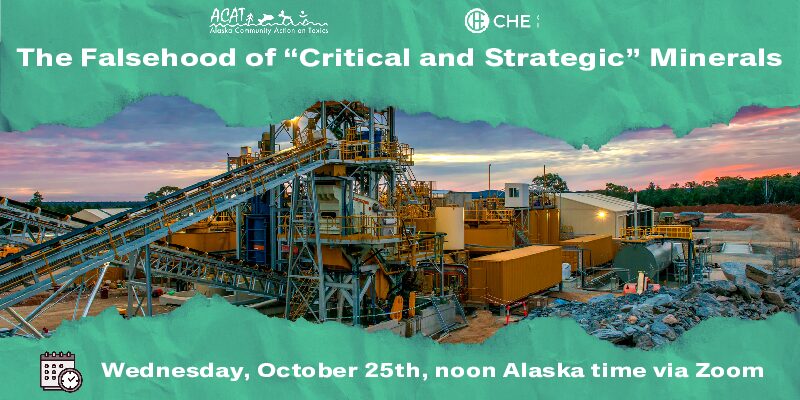Posts by nickr
The Arctic’s Plastics Crisis: Dangers to Health & Human Rights of Indigenous Peoples
The Arctic is warming nearly four times faster than the rest of the world, and Arctic Indigenous Peoples bear the brunt of the plastic and petrochemical industry’s toxic operations. Plastics and chemicals from all over the world are transported on atmospheric and oceanic currents northward, where they accumulate in the Arctic through a process called…
Read MorePlanet Earth & Climate Change, Voices of Climate Change Documentary
A recent documentary – Planeta Tierra & Cambio Climatico, Voces del Cambio Climatico. (Planet Earth & Climate Change, Voices of Climate Change) – features a short interview with our very own Sama Seguinot-Medina in December 2023. Sama spoke about rapid climate change in the Arctic, food security and ACAT’s work. Many other important Latinx voices…
Read MoreThe Arctic’s Plastic Crisis: Toxic Threats to Health, Human Rights, and Indigenous Lands From the Petrochemical Industry
Damage to the Arctic from the fossil fuel/petrochemical industry includes threats from chemicals, plastics, and climate. These have combined to poison the lands, waters, and traditional foods of Arctic Indigenous Peoples, with ongoing health effects that threaten their cultures and communities. This report highlights the voices and testimonies of Indigenous leaders who have witnessed these…
Read MoreACAT is hiring a Policy Director!
ACAT is hiring a Policy Director! Are you the person we’re looking for? If you think being called a “policy wonk” is high praise . . . and you’re passionate about environmental justice and protecting Alaskans’ health and environment from toxic chemicals, ACAT’s Policy Director may be your dream job. The successful applicant will be…
Read MorePetrochemicals, Plastics & Health: Will Global Treaty Offer Pathway to Progress?
Plastics chemicals and their impacts on human health are a central issue in the global plastics crisis. An estimated 99% of plastic is made from fossil fuel-derived chemicals (or petrochemicals), which have been associated with increased rates of neurodevelopmental disorders, diabetes, chronic respiratory disease, and certain cancers. A recent review article by Dr. Tracey Woodruff…
Read MoreChemical Exposures and Children’s Mental Health
While the adverse effects of many toxic chemicals on physical health are widely recognized, their impacts on mental health are not as well understood. A recently published literature review revealed a substantial body of evidence that links exposures to chemicals in our environment, including lead, PFAS, and BPA, to children’s mental health symptoms such as…
Read MoreThe Realities of Chemical Recycling and the Plastic Pollution Crisis
Check out the Webinar Highlights fact sheet for key findings and quotes from this webinar. In the midst of the global plastics pollution crisis, there has been recent growing interest in recycling technologies for plastic, including “advanced recycling” and “chemical recycling.” However, recycling processes don’t diminish the harm if the starting materials had harmful…
Read MorePFAS in Locally Caught Fish: Threats to Health & Environmental Justice
Check out the Webinar Highlights fact sheet for key findings and quotes from this webinar. Efforts to address PFAS contamination have been primarily directed at exposure from drinking water. However, a recent study by the Environmental Working Group (EWG) found substantially higher PFAS levels in locally caught freshwater fish across the United States. Per-…
Read MoreBreast Cancer, Pinkwashing, and the Importance of Prevention
Breast cancer is a disease in which cells in the breast grow out of control. Many breast cancers form in the ducts or lobules. Despite progress in modern medicine, breast cancer still remains the predominant form of cancer in the United States. While finding cures for breast cancer is crucial, directing resources toward prevention will…
Read MoreEPA Issues Long Overdue Endangerment Finding for Leaded Aviation Gas
Last week, the Environmental Protection Agency (EPA) finally released a complete endangerment finding for lead in aviation gas (avgas) used in piston-engine airplanes, a huge step to ensure Alaskan communities are protected from the nation’s largest source of lead emissions. There is no known safe level of lead for humans. Lead is known to…
Read MoreUnited Nations Expert Committee, Including Representation from Alaska, Recommends Global Bans on Toxic Chemicals
From October 9-13, the Persistent Organic Pollutants Review Committee (POPRC) convened in Rome to review toxic chemicals for global regulation and eventually elimination. The POPRC is the expert scientific committee of the Stockholm Convention on Persistent Organic Pollutants (POPs). The Stockholm Convention is the only legally binding international treaty to eliminate the world’s most…
Read MoreThe Falsehood of “Critical and Strategic” Minerals with Bonnie Gestring and Austin Ahmasuk
According to the Department of Energy, a “critical mineral” is defined as “Any mineral, element, substance, or material designated as critical by the Secretary of the Interior.” However, environmental justice advocates say this definition is the extraction industry’s latest attempt to reduce environmental and community health protections. The label frames dangerous extractive practices as being…
Read More








